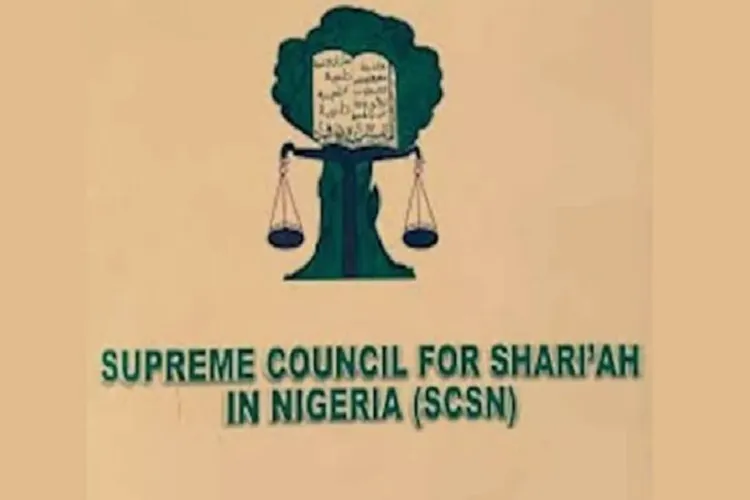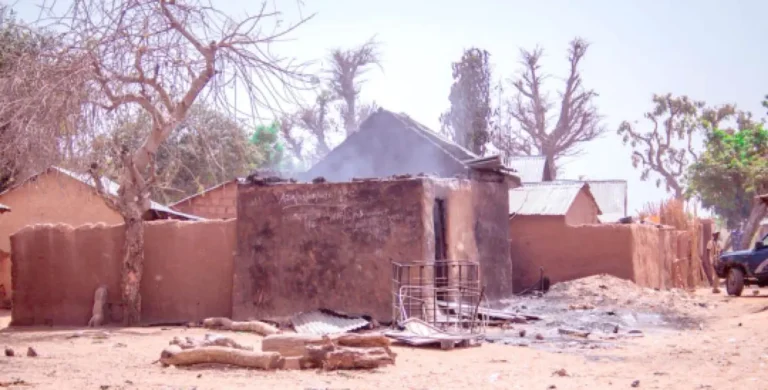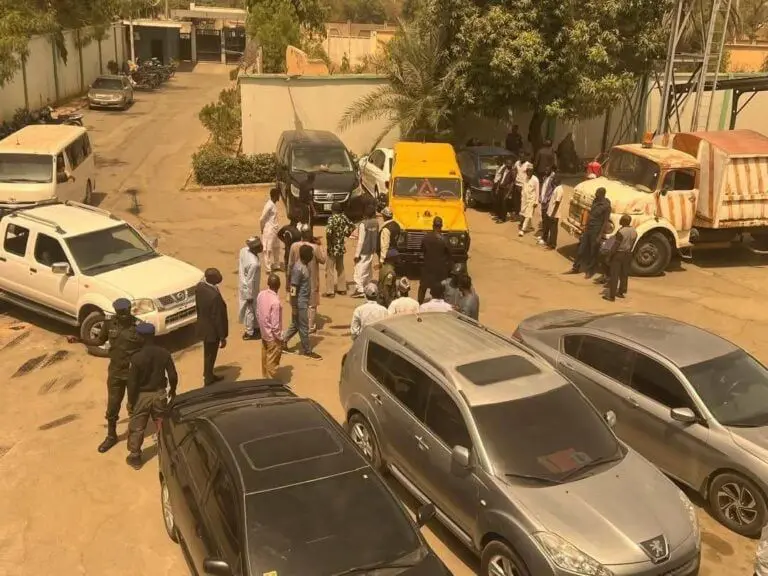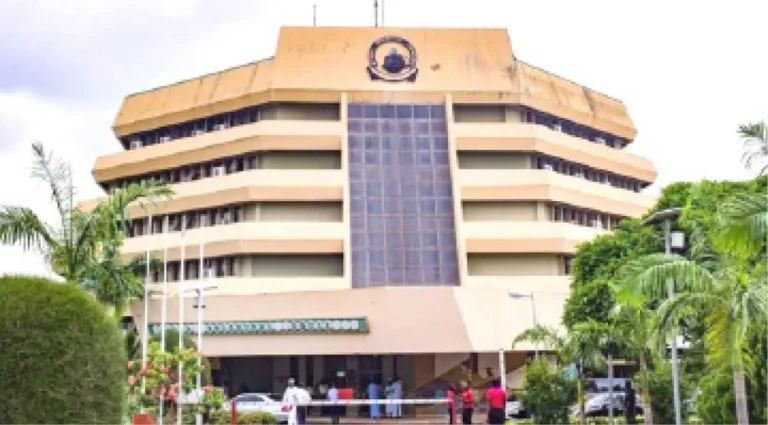
The passing of former Nigerian President Muhammadu Buhari on July 13, 2025, at the age of 82, marks the end of an era for a man whose life and leadership profoundly shaped Nigeria’s trajectory. As a retired Major General and former military head of state (1983 -1985), Buhari’s return to power as a democratically elected president from 2015 to 2023 was historic, making him the first opposition candidate to unseat an incumbent in Nigeria’s democratic history.
His spartan lifestyle and anti-corruption posturing won him admiration, particularly among the northern talakawa (commoners), but his tenure was marred by divisive ethnic policies, particularly his anti-Igbo actions and perceived pro-Fulani sentiments, alongside an economic collapse that left Nigeria reeling. As we mourn his passing, AAMagazine reflects on the complexities of his legacy, urging a sober examination of his contributions and failures.
A Spartan Leader with a Reputation for Integrity
Buhari’s austere persona was a defining trait. Born in Daura, Katsina State, to a Fulani father and Kanuri mother, he grew up in modest circumstances, a fact he often highlighted. His military background, shaped by rigorous training in Nigeria and the UK, instilled a disciplinarian ethos that resonated with many Nigerians weary of ostentatious leadership.
As a military ruler in the 1980s, his “War Against Indiscipline” targeted corruption, armed robbery, and societal decay, earning him a reputation as a no-nonsense leader. In 2015, his campaign mantra of change hinged on this image of personal honesty – a rarity in Nigerian politics.
“I am not a rich person, I can’t give you a pocketful of dollars or naira to purchase your support,” he declared, striking a chord with a populace frustrated by corrupt elites.
His administration’s anti-corruption drive, led by the Economic and Financial Crimes Commission (EFCC), saw high-profile arrests and asset recoveries, reinforcing his image as “Mr. Honesty.” However, critics argue this was more posturing than substance. They say that Buhari’s anti-corruption efforts were tainted by selective targeting, often sparing allies while pursuing opponents. Despite his rhetoric, systemic corruption persisted, undermining his promises and leaving many Nigerians disillusioned.
Anti-Igbo Actions and Ethnic Polarization
Buhari’s presidency was deeply divisive, particularly in its treatment of the Igbo people in South East Nigeria. His administration’s policies and rhetoric exacerbated ethnic tensions, fostering perceptions of marginalization among the Igbo. Ohanaeze Ndigbo, a prominent Igbo socio-cultural organization, described his tenure as marked by “systemic victimization” of the Igbo, often through state machinery.
Statements like referring to the Igbo as “a dot in the circle” or promising to teach them “the language they will understand” fuelled feelings of alienation.
The arrest and continued detention of Nnamdi Kanu, leader of the Indigenous People of Biafra (IPOB), became a flashpoint. While Buhari’s government labeled IPOB a terrorist organization, it was criticized for leniency toward Fulani herdsmen and northern bandits, who were often released or reintegrated despite committing violent acts.
This contrast deepened Igbo distrust, with groups like the Alaigbo Development Foundation (ADF) accusing Buhari of being a “Fulani irredentist” whose policies reignited Biafran separatism. His administration’s failure to address Fulani herdsmen attacks on Igbo communities, coupled with the controversial Ruga policy to create grazing settlements, was seen as prioritizing Fulani interests over national unity.
Buhari’s own words in 2015, stating he would favour regions that voted for him (97% support) over those that did not (5% in the Igbo-dominated South East), set a tone of exclusion that haunted his presidency. This overt partisanship, combined with the absence of Igbo representation in key security roles, as noted by political analysts, entrenched perceptions of ethnic bias.
Pro-Fulani Sentiments and Security Failures
As a Fulani, Buhari faced accusations of favouring his ethnic group, particularly in handling the herder-farmer conflicts that plagued Nigeria’s Middle Belt and southern regions. The unchecked violence by Fulani herdsmen, responsible for thousands of deaths, drew criticism for the government’s “troubling silence.”
The proposed Ruga policy, aimed at creating settlements for Fulani herders, was perceived as a “Fulanization agenda” that prioritized tribal loyalty over national cohesion. Southern states’ rejection of Ruga underscored the policy’s divisive nature.
Security deteriorated under Buhari’s watch. Despite campaign promises to defeat Boko Haram, the group remained a threat, with factions aligning with the Islamic State. Banditry in the northwest, particularly along the Abuja-Kaduna highway, earned it the moniker “highway of kidnapping.”
The Council on Foreign Relations noted that Buhari’s failure to address these crises, coupled with his perceived leniency toward Fulani perpetrators, eroded public trust. His administration’s hard-line stance against non-violent groups like IPOB, while seemingly soft on northern bandits, fuelled accusations of ethnic bias.
Economic Collapse and a Legacy of Hardship
Buhari’s economic record is perhaps his most damning failure. Elected amid high hopes, his presidency coincided with Nigeria’s worst economic crisis in decades, triggered by a slump in global oil prices and exacerbated by policy missteps.
The economy, heavily reliant on oil, faltered as Buhari failed to diversify revenue streams or reduce dependency on petroleum. By 2023, Nigeria’s economy was in tatters, with inflation soaring, unemployment rampant, and over 90 million people living in extreme poverty. Infrastructure and healthcare systems collapsed under neglect, and the naira’s value plummeted, leaving Nigerians grappling with unprecedented hardship.
The Coalition of South East Youth Leaders (COSEYL) described Buhari’s economic management as a key contributor to Nigeria’s current woes, noting that his exclusionary policies deepened regional disparities. The imposition of cash withdrawal limits and naira redesign in 2023, intended to curb vote-buying, instead caused widespread economic disruption. Buhari’s infrastructure investments, praised by some as a legacy of hope, were overshadowed by their limited impact and the massive debt incurred.
A Call for Reflection
Muhammadu Buhari’s death invites Nigeria to reflect on a leader whose Spartan nature and anti-corruption rhetoric inspired hope but whose governance deepened ethnic divisions and economic despair. His anti-Igbo actions and perceived pro-Fulani bias alienated millions, while his economic failures left a generation grappling with hardship. Buhari’s passing should be a lesson to current leaders: political positions are transient, and governance must prioritize unity and equity over tribalism.
At AAMagazine, we join Nigerians in mourning Buhari’s passing, respecting the Igbo tradition of honouring the deceased. Yet, we cannot ignore the painful episodes of his presidency. Nigeria’s leaders must learn from his missteps, fostering inclusive governance that bridges ethnic divides and rebuilds the economy.
Buhari’s legacy is a reminder that leadership demands not just discipline but empathy, vision, and a commitment to all Nigerians, regardless of region or ethnicity. Let his life and death inspire a renewed pursuit of a united, prosperous Nigeria.




